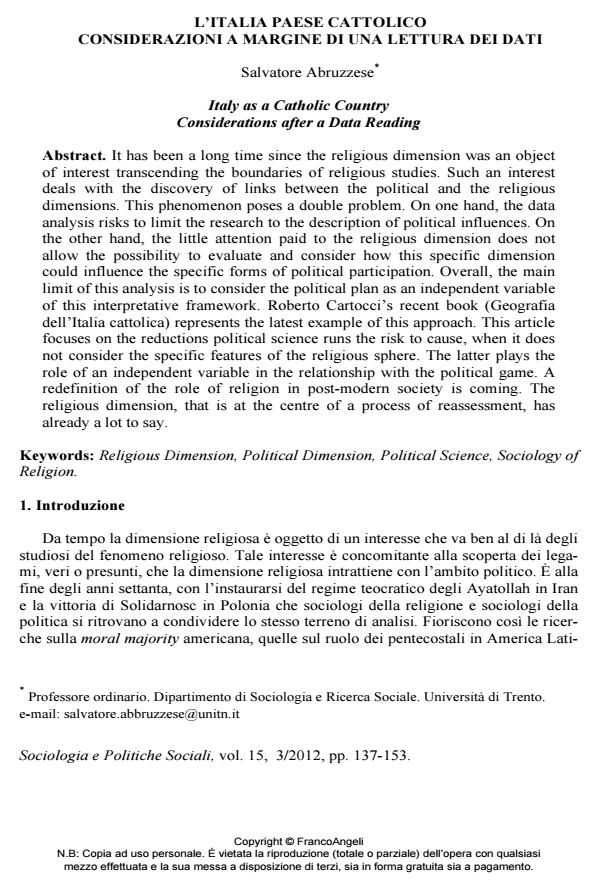Italy as a Catholic Country Considerations after a Data Reading
Journal title SOCIOLOGIA E POLITICHE SOCIALI
Author/s Salvatore Abruzzese
Publishing Year 2013 Issue 2012/3
Language Italian Pages 17 P. 137-153 File size 253 KB
DOI 10.3280/SP2012-003009
DOI is like a bar code for intellectual property: to have more infomation
click here
Below, you can see the article first page
If you want to buy this article in PDF format, you can do it, following the instructions to buy download credits

FrancoAngeli is member of Publishers International Linking Association, Inc (PILA), a not-for-profit association which run the CrossRef service enabling links to and from online scholarly content.
It has been a long time since the religious dimension was an object of interest transcending the boundaries of religious studies. Such an interest deals with the discovery of links between the political and the religious dimensions. This phenomenon poses a double problem. On one hand, the data analysis risks to limit the research to the description of political influences. On the other hand, the little attention paid to the religious dimension does not allow the possibility to evaluate and consider how this specific dimension could influence the specific forms of political participation. Overall, the main limit of this analysis is to consider the political plan as an independent variable of this interpretative framework. Roberto Cartocci’s recent book (Geografia dell’Italia cattolica) represents the latest example of this approach. This article focuses on the reductions political science runs the risk to cause, when it does not consider the specific features of the religious sphere. The latter plays the role of an independent variable in the relationship with the political game. A redefinition of the role of religion in post-modern society is coming. The religious dimension, that is at the centre of a process of reassessment, has already a lot to say.
Keywords: Religious Dimension, Political Dimension, Political Science, Sociology of Religion.
Salvatore Abruzzese, L’Italia paese cattolico considerazioni a margine di una lettura dei dati in "SOCIOLOGIA E POLITICHE SOCIALI" 3/2012, pp 137-153, DOI: 10.3280/SP2012-003009